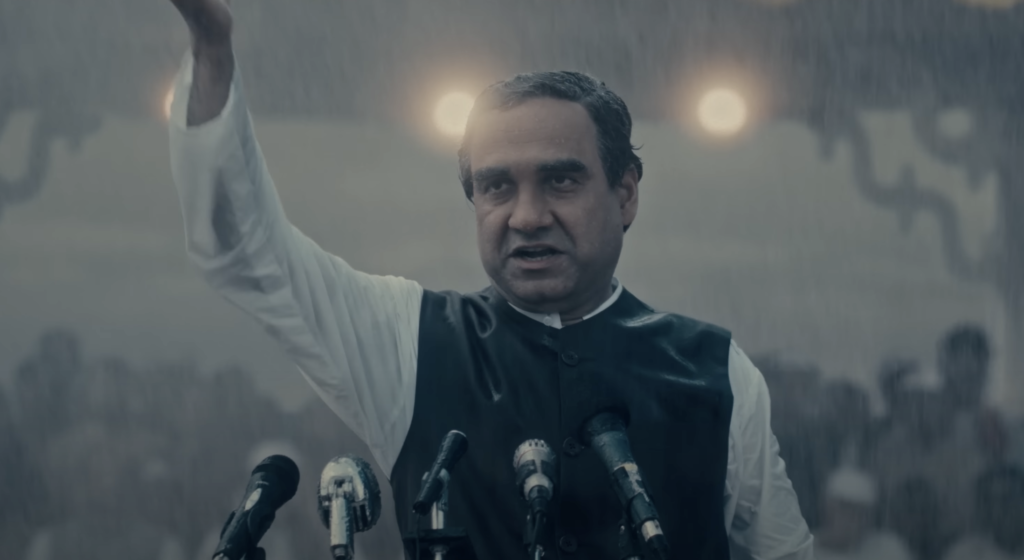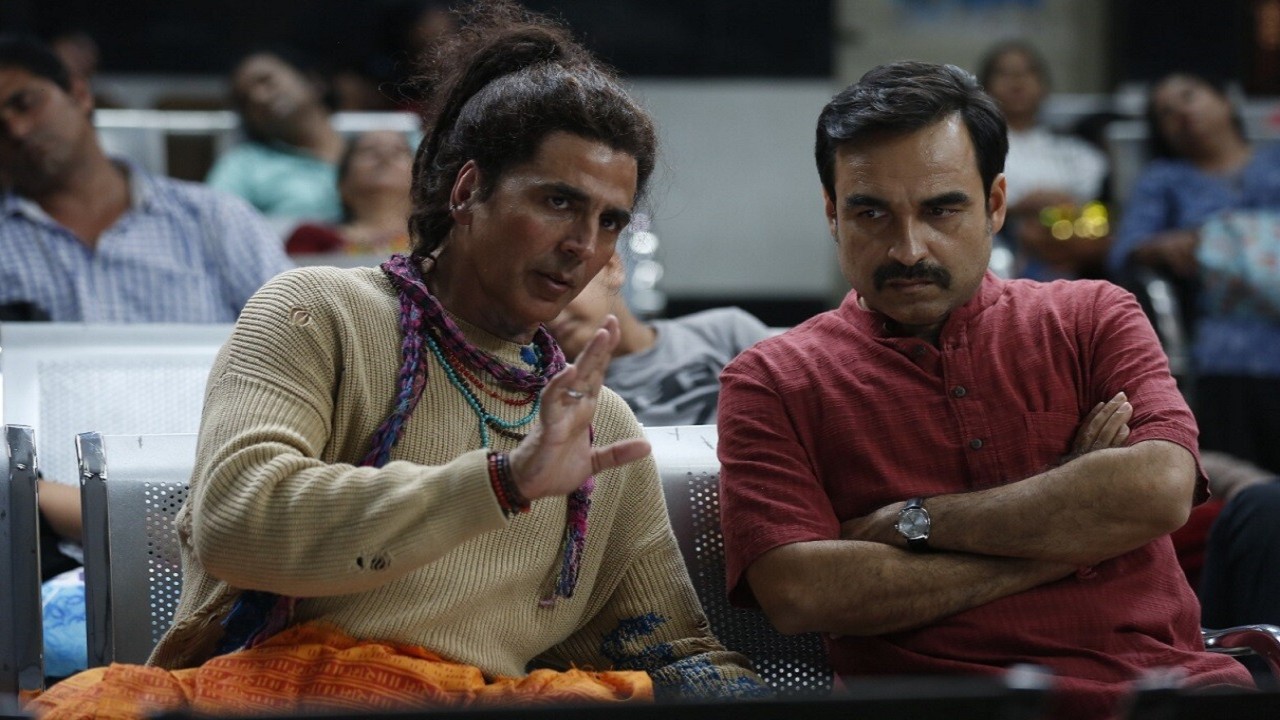Hindi Movie Review: Main Atal Hoon is a hagiographic, overly simple biopic elevated by a strong lead performance

I entered Main Atal Hoon knowing just the basics of the political legacy of Indian Prime Minister Atal Bihari Vajpayee, and I left the movie only barely more educated on him. Sure, over the course of nearly two-and-a-half hours, the film takes viewers through the major beats of Vajpayee’s life – from childhood to just before his death – and captures some of the defining moments of his ascent to PM and his six years in office. But this is a quintessential example of a political biopic that aims less to examine the nuanced views, policy positions, and implementation strategies of its subject and his team, and more to simply reinforce that he was an amazing leader who forged his own path. This is pure hagiography for the fans; if you want to really learn about what made Vajpayee such a force in Indian politics, you are better off using the same amount of time reading Internet sources.
I’m far from opposed to biopics that exist mainly to celebrate the life and work of an icon, but there has to be some substance to the celebration. Main Atal Hoon may cover a lot of ground, but it never really gives the viewer all that much insight into Vajpayee’s motivations to lead or why he held the values he did. The film often shows us how incredibly strong he is in his convictions, devoting his life to the Sangh as a young man, but it doesn’t give us much of the why behind said convictions. Sure, we get a fairly paint-by-numbers depiction of British rule in India and some hints of Hindu spirituality, but little more. By not adequately illuminating the origins of the man’s beliefs, the film narrows its audience to only those who accept that such beliefs are wonderful at face value.
Hindi Movie Review: Kadak Singh has its pleasures, but it’s at best a TV-caliber mystery

Aniruddha Roy Chowdhury’s Kadak Singh plays so much like a paperback mystery, it’s a little hard for me to believe that the film comes from an original screenplay and is not, in fact, based on an obscure airport novel. It has many of the trimmings we’ve come to expect of knockoff Agatha Christie: a fortuitous case of retrograde amnesia, an apparent suicide attempt that may not have actually been a suicide attempt, a highly unlikely chance encounter between two parties that is extremely compromising for both, a “trust no one” style of storytelling, and so on and so forth.
As Kenneth Branagh has realized with greater acuity in each successive Christie adaptation he has made, most notably this year’s A Haunting in Connecticut, such hokum can make for a fun cinematic ride as long as it isn’t taken especially seriously. Chowdhury and the filmmaking team behind Kadak Singh didn’t necessarily get that memo, as they consistently try to sell the viewer on the credibility of each preposterous plot point. I don’t know about the average mystery B-movie viewer, but I’m personally more likely to cut the filmmakers slack in terms of plot holes when they dispense of them with a friendly wink.
Hindi Movie Review: OMG 2 falters in adapting the original scenario to a fit new social issue

The first Oh My God!, released in 2012, was a flawed film with an intriguing high concept, adapted from the Gujarati stage play Kanji Virudh Kanji and its inspiration, the Australian film The Man Who Sued God. The premise: With the earthquake that destroyed his shop deemed an “Act of God,” atheist Kanji Lalji Mehta seeks to take the responsible party – in this case, the Lord himself – to court. This evolves into a clever morality play that sees Kanji going after the self-anointed religious officers in society who collect donations only to enrich themselves, rather than serve the will of God and help others. While the setup of Oh My God! was better than its execution, which took the story into heavy-handed and obvious directions, it had a thought-provoking central idea relating to organized religion’s role in upholding justness. Looking back, it’s no surprise that such an ingenious, easily articulated concept that hit at the zeitgeist yielded big box office returns.
Oh My God! was clearly intended to be a self-contained story, so it’s hardly a surprise that its connection to this decade-later sequel feels awkward at best. The only common ingredient between the two films is Akshay Kumar, who reprises his role as a divine messenger – this time as a manifestation of Shiva, while last time it was Krishna. But even this part of the sequel feels like it has been shoehorned in. Whereas Kumar came across as a true spiritual guide to Kanji in the first film, offering divine counsel in urging him to read the Gita, Bible, and Quran for answers to his predicament, here he takes on more of the role of a “fairy godfather,” providing convenient solutions for protagonist Kanti Sharan Mudgal (Pankaj Tripathi) whenever he reaches a seemingly unsurmountable obstacle. As such, the franchise’s entire notion of spiritual devotion becomes muddled; whereas the first film ultimately extolled the virtues of unconditional belief in God, here it would seem the takeaway is you only need Him when you’re in a pinch. And this is only the beginning of the story’s thematic confusion.

